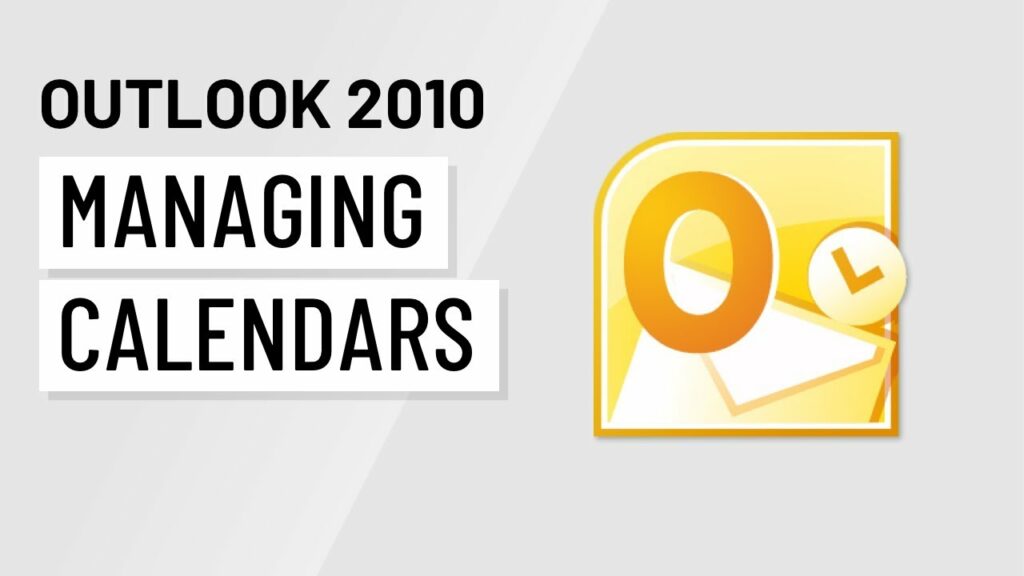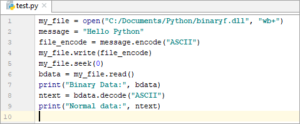Unveiling the Calendar Canvas: A Comprehensive Guide to Managing Your Calendars in Outlook 2010

Introduction:
In the fast-paced landscape of modern life, effective calendar management is crucial for maintaining productivity and organization. Microsoft Outlook 2010, a cornerstone in the world of digital communication and productivity tools, offers robust features for managing calendars. This extensive guide aims to provide an in-depth exploration of managing calendars in Outlook 2010, covering key functionalities, customization options, and advanced strategies to optimize your scheduling and time management.
Chapter 1: The Essence of Calendars in Outlook 2010
- Role of Calendars: Establish a foundational understanding of the role calendars play in Outlook 2010. Explore how calendars serve as a dynamic tool for scheduling, organizing events, and managing time efficiently.
- Integration with Other Features: Understand the seamless integration of calendars with other features in Outlook 2010, such as emails, contacts, and tasks. Explore how the interconnected nature of these elements enhances overall productivity.
Chapter 2: Creating and Adding Calendar Events
- Adding Individual Events: Master the basics of adding individual events to your Outlook 2010 calendar. Learn how to input event details, including the title, date, time, location, and additional information.
- Recurring Events: Explore the functionality of recurring events for activities that repeat over time. Learn how to set up daily, weekly, monthly, or custom recurring events to streamline your calendar management.
Chapter 3: Managing Multiple Calendars
- Creating Additional Calendars: Delve into the creation of additional calendars in Outlook 2010. Understand how multiple calendars can be utilized for different aspects of your life, such as work, personal, or specific projects.
- Overlaying Calendars: Explore the option to overlay multiple calendars for a consolidated view. Learn how overlaying calendars can provide a comprehensive snapshot of your schedule without toggling between different views.
Chapter 4: Calendar Views and Layouts
- Customizing Calendar Views: Explore the customization options for calendar views in Outlook 2010. Learn how to tailor the display settings to suit your preferences, including day, week, month, or even a detailed schedule view.
- List and Agenda Views: Navigate between list and agenda views for calendars in Outlook 2010. Understand the advantages and use cases for each view to optimize your experience in managing and accessing event information.
Chapter 5: Color-Coding and Categorizing Events
- Color-Coding Events: Enhance visual organization by color-coding events on your calendar. Learn how to assign specific colors to events based on categories, priorities, or types, creating a visually intuitive schedule.
- Categorizing Events: Explore the use of categories for organizing and categorizing events in Outlook 2010. Learn how to assign color-coded categories to events based on criteria such as work, personal, or specific projects.
Chapter 6: Invitations, Meetings, and Scheduling
- Sending Calendar Invitations: Master the art of sending calendar invitations in Outlook 2010. Learn how to invite attendees to events, set reminders, and manage responses for streamlined event coordination.
- Scheduling Meetings: Explore the process of scheduling meetings using Outlook 2010. Understand how to utilize the scheduling assistant, propose meeting times, and coordinate with multiple participants seamlessly.
Chapter 7: Reminders and Alerts
- Setting Event Reminders: Harness the power of event reminders in Outlook 2010. Learn how to set up reminders for individual events, ensuring that you stay informed and on top of your schedule.
- Customizing Alert Settings: Explore the customization options for alert settings in Outlook 2010. Tailor the alert preferences to suit your needs, including the timing, sound, and display of event reminders.
Chapter 8: Sharing and Collaborating on Calendars
- Sharing Your Calendar: Delve into the sharing capabilities of calendars in Outlook 2010. Learn how to share your calendar with colleagues, friends, or family members to facilitate collaborative scheduling.
- Viewing Shared Calendars: Explore how to view calendars that others have shared with you. Learn how to overlay shared calendars and manage permissions for a seamless collaborative calendar experience.
Chapter 9: Calendar Search and Filtering
- Efficient Calendar Search: Harness the power of the search feature in Outlook 2010 to quickly locate specific events on your calendar. Explore advanced search options and techniques to efficiently sift through your schedule.
- Filtering Calendar Views: Master the art of filtering calendar views based on specific criteria. Utilize filters to focus on specific subsets of your schedule, such as work-related events, personal commitments, or deadlines.
Chapter 10: Exporting and Importing Calendar Data
- Exporting Calendar Data: Explore strategies for exporting calendar data from Outlook 2010. Learn how to create backup copies, share events with other applications, or migrate your calendar to a different platform.
- Importing Calendar Data: Understand the process of importing calendar data into Outlook 2010. Explore methods for integrating events from external sources, such as other calendars, files, or third-party applications.
Chapter 11: Mobile and Web Access for Calendars
- Accessing Calendars on Mobile Devices: Explore strategies for managing calendars on mobile devices. Learn how to sync your Outlook 2010 calendar with mobile devices and leverage mobile calendar apps for efficient on-the-go management.
- Web Access and Outlook.com Integration: Understand how web access and Outlook.com integration enhance your calendar management capabilities. Learn how to access and organize your calendars seamlessly across different platforms.
Chapter 12: Calendar Security and Privacy
- Secure Calendar Handling: Prioritize calendar security and explore best practices for secure calendar handling in Outlook 2010. Understand how to protect sensitive event information and prevent unauthorized access.
- Privacy and Data Protection: Explore privacy settings and data protection features in Outlook 2010. Learn how to control the visibility of calendar details, manage access permissions, and safeguard personal information within the email client.
Conclusion:
In conclusion, mastering the art of managing calendars in Outlook 2010 is a fundamental skill that can significantly impact time management and organizational efficiency. This comprehensive guide has equipped you with a thorough understanding of the tools, features, and strategies available in Outlook 2010 for effective calendar management.
Embrace the power of multiple calendars, color-coding, event categorization, and advanced features like sharing and collaboration tools to tailor Outlook 2010 to your unique workflow. Whether you are a seasoned professional or a novice user, the insights provided in this guide empower you to take control of your schedule, ensuring a well-organized and efficient digital workspace. By implementing these strategies, you can harness the full potential of Outlook 2010 and master the art of calendar management with confidence.




